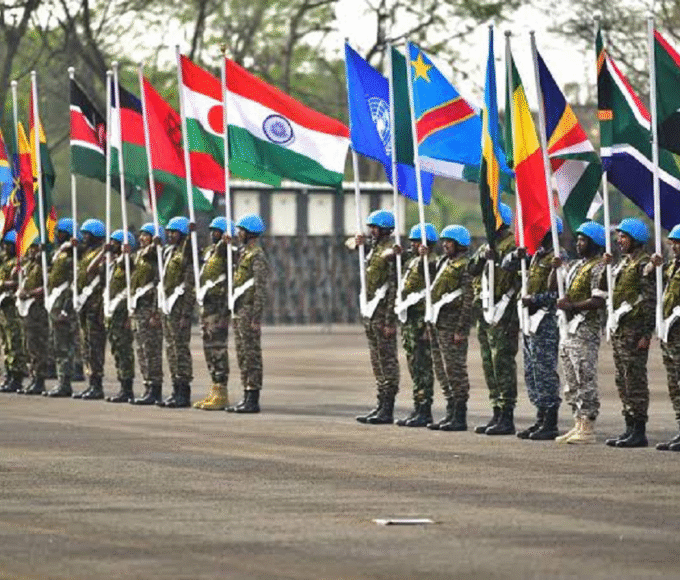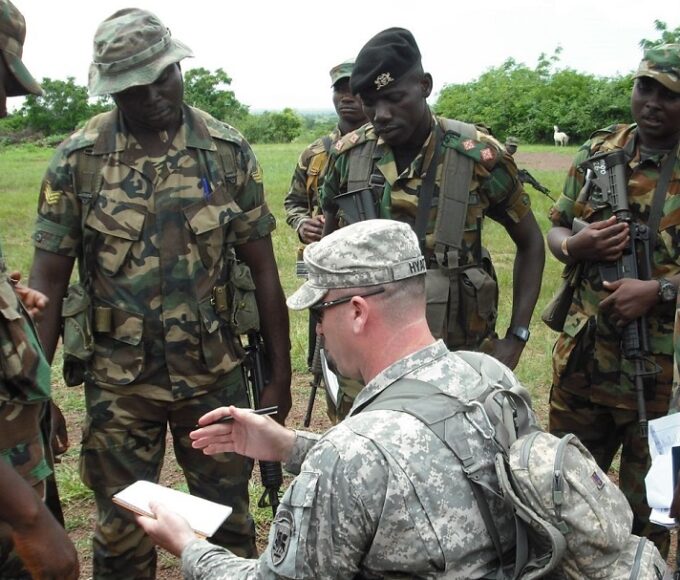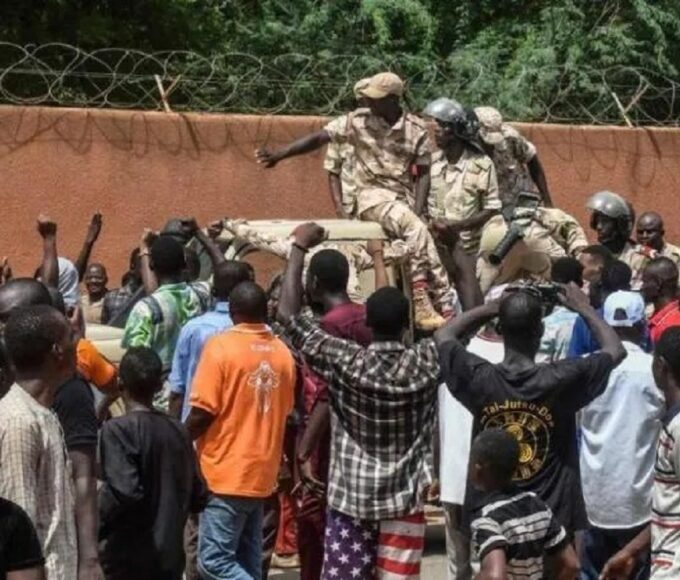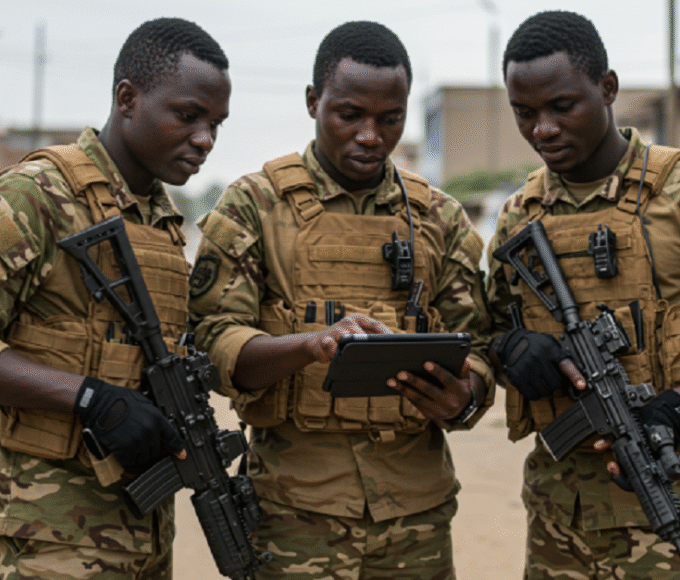From Askaris to Nation Builders: African Soldiers in World Wars I & II
From the trenches of Europe to the jungles of Burma, African soldiers left blood and bone on battlefields far from home.

They marched in British khaki through the jungles of Burma, carried rifles for the French in the hills of Alsace, and hauled heavy artillery through the rocky ridges of Ethiopia. They served under colonial flags, saluted foreign commanders, and often fought for causes that did not promise them freedom. Yet without them, the outcome of two world wars—and Africa’s post-colonial emergence—would have looked very different.
Africa’s role in World Wars I and II remains one of the least acknowledged chapters in global military history. Over two million Africans were conscripted, recruited, or volunteered to serve in combat or support roles across multiple theatres. Their legacy lies not only in their battlefield contributions but in how their service reshaped African identities, catalysed anti-colonial resistance, and birthed a generation of political and military leaders.
The African Frontlines of the First World War
World War I (1914–1918) dragged Africa into a conflict it neither caused nor fully understood. Yet it became both battleground and barracks.
The Schutztruppe—German colonial forces—faced off against Allied troops in long campaigns across German East Africa (modern-day Tanzania, Rwanda, Burundi). General Paul von Lettow-Vorbeck famously conducted a guerrilla campaign that tied down nearly 300,000 Allied troops, many of them African, with a force of just 14,000—half of whom were African askaris.
On the Allied side, Britain and France mobilised hundreds of thousands of Africans as porters, soldiers, scouts, and logistical staff. In East Africa alone, over 1 million African carriers were conscripted to transport equipment and supplies, often at immense human cost. More than 100,000 porters are believed to have died in the East African campaign due to disease, exhaustion, and starvation.
In West Africa, the French deployed the Tirailleurs Sénégalais—a corps of black soldiers drawn from across its colonies. These troops served with distinction in Europe, suffering high casualties during battles like the Somme (1916) and Verdun.
World War II: A Continental Effort
When World War II erupted in 1939, Africa once again found itself enlisted into the service of empires. This time, however, the mobilization was broader and more structured.
- Over 350,000 African troops served in the British forces during the war.
- France mobilised over 160,000 soldiers from its African colonies.
- The Italian invasion of Ethiopia in 1935—a precursor to the wider war—galvanised Pan-African solidarity and resistance.
- The Allied campaign in North Africa (1940–1943) depended heavily on African troops in battles from El Alamein to Tunis.
Among the most celebrated were the King’s African Rifles (KAR) and Force Publique from the Belgian Congo. Nigerian, Ghanaian, and Kenyan troops fought in Burma, Ethiopia, and the Middle East, often in under-resourced units facing heavy tropical disease rates and racial discrimination.
The irony was stark: soldiers who were denied the right to vote or own land in their homelands were fighting for the freedom of Europe.
War and the Rise of Political Consciousness
For many African veterans, military service was their first exposure to international politics, technology, and organised institutions. It also revealed the vulnerability of colonial empires.
“They saw Europeans fleeing the Japanese, suffering defeats, and turning to Africans for help. That changed everything,” said Professor Moses Ochonu, a Nigerian-American historian at Vanderbilt University.
In Kenya, future Mau Mau leaders like Dedan Kimathi were veterans of WWII. In Nigeria, figures such as Major-General Johnson Aguiyi-Ironsi (later Head of State) began their careers in the colonial military. The war introduced Pan-African ideals to a generation of conscripts who returned with sharper political consciousness and new leadership skills.
Racism and Resistance
Despite their bravery, African soldiers faced systemic racism during and after the wars. Many were paid less than white counterparts, denied medals, and excluded from veterans’ benefits. The Thiaroye massacre in Senegal (1944) remains one of the darkest examples—when French troops opened fire on demobilised West African soldiers protesting unpaid wages, killing over 35 veterans, though some accounts suggest the death toll was far higher.
Such betrayals fuelled resentment and radicalised many veterans. In Ghana, ex-servicemen formed influential protest movements, leading to the 1948 Accra riots—one of the catalytic events in the country’s path to independence.
Remembering the Forgotten
While Europe builds museums to its heroes of both wars, many African soldiers remain buried in unmarked graves, their names lost to colonial bureaucracy.
In recent years, efforts to correct this historical amnesia have begun:
- Commonwealth War Graves Commission (CWGC) has initiated projects to identify unmarked African graves.
- France and the U.K. have publicly acknowledged colonial-era discrimination in veterans’ compensation.
- In 2021, the U.K. government committed to redress after a report revealed systemic neglect of African war dead.
But the gap in collective memory remains vast.
“Commemoration must go beyond symbols,” said Fatou Bensouda, former Chief Prosecutor of the ICC. “We must teach our youth that Africa helped save the world twice—and received neither thanks nor freedom in return.”
Legacy Beyond the Battlefield
The impact of Africa’s world war veterans extended beyond politics. They became school teachers, policemen, farmers, and community leaders. Their discipline, networks, and vision helped form the foundation of many post-independence civil and military institutions.
In Tanzania, many ex-KAR officers joined the new Tanzanian People’s Defence Force (TPDF). In Zimbabwe, liberation fighters often trained in military traditions inherited from WWII veterans. In Cameroon, former French African soldiers led civic reconstruction in the post-war years.
Their legacy is not simply martial—it is national.
Builders in Uniform
From the trenches of Europe to the jungles of Burma, African soldiers left blood and bone on battlefields far from home. They returned not as imperial subjects, but as men—and women—who had glimpsed global power and returned determined to shape their own.
Their war was not just for Europe’s liberty; it was the prelude to Africa’s.
WWI & WWII Snapshot (African Involvement):
- Total African soldiers in WWI: 2 million+ (combatants & auxiliaries)
- Total African soldiers in WWII: Approx. 700,000
- African deaths in East Africa campaign (WWI): 100,000+ (mainly porters)
- Estimated African participation in Burma Campaign: 100,000
- Number of African veterans without pensions post-1945: Unknown, but significant majority
- Countries with memorials dedicated to African WWII soldiers: Fewer than 10
Recent Posts
Categories
- Air & Aerospace17
- Border Security15
- Civil Security6
- Civil Wars4
- Crisis5
- Cyber Security8
- Defense24
- Diplomacy19
- Entrepreneurship1
- Events5
- Global Security Watch6
- Industry8
- Land & Army9
- Leadership & Training5
- Military Aviation7
- Military History27
- Military Speeches1
- More1
- Naval & Maritime9
- Policies1
- Resources2
- Security12
- Special Forces2
- Systems And Technology9
- Tech6
- Uncategorized6
- UNSC1
- Veterans7
- Women in Defence9
Related Articles
INDIA’S GROWING MILITARY PARTNERSHIPS WITH AFRICA
India’s engagement with Africa is undergoing a quiet but powerful transformation. What...
ByKing Richard Igimoh, Group Editor ALOOctober 14, 2025EVOLVING HORIZONS: TRAINING THE AFRICAN SOLDIER IN A CHANGING LANDSCAPE
The training of African soldiers has undergone a profound transformation in recent...
ByKing Richard Igimoh, Group Editor ALOOctober 2, 2025COLD WAR AFRICA: PROXY WARS AND THEIR IMPACT
The Cold War in Africa, spanning from the late 1940s to the...
ByKing Richard Igimoh, Group Editor ALOSeptember 26, 2025AI AND AFRICA’S MILITARY INTELLIGENCE: PROMISE AND PERIL IN A TRANSFORMING SECURITY LANDSCAPE
Africa’s military landscape is entering a new chapter, shaped by the rapid...
ByKing Richard Igimoh, Group Editor ALOSeptember 22, 2025













